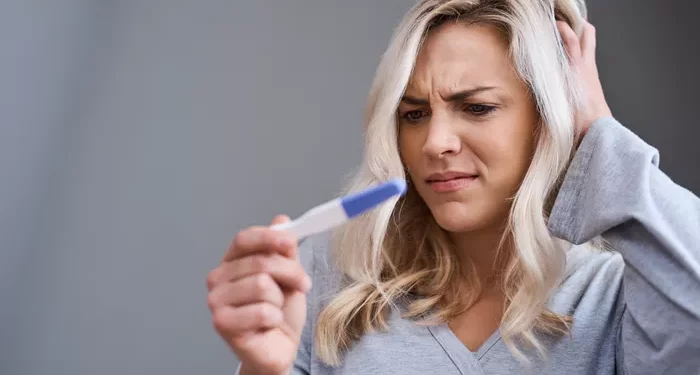Achieving pregnancy at the age of 40 can be challenging due to various age-related factors affecting fertility. However, many women in their 40s are successfully conceiving and having healthy pregnancies. This article provides a detailed guide on how to improve your chances of getting pregnant quickly at 40, including lifestyle adjustments, medical interventions, and practical tips.
Introduction: Fertility Challenges at Age 40
1. Understanding Fertility at 40
Fertility naturally declines with age, and by age 40, several factors can affect your ability to conceive. These include decreased egg quantity and quality, hormonal changes, and an increased risk of pregnancy complications. Despite these challenges, many women are still able to conceive and have healthy pregnancies.
2. The Importance of Preparation
Preparing for pregnancy at 40 involves understanding the factors that impact fertility and taking proactive steps to address them. Proper preparation can enhance your chances of conceiving quickly and support a healthy pregnancy.
Factors Affecting Fertility at Age 40
1. Decline in Egg Quality and Quantity
Reduced Egg Reserve
By age 40, the number of eggs in your ovaries has significantly decreased. Fewer eggs mean fewer opportunities for fertilization and a higher likelihood of difficulties with conception.
Lower Egg Quality
In addition to a reduced quantity, the quality of eggs also declines with age. Older eggs are more prone to chromosomal abnormalities, which can impact fertilization and increase the risk of miscarriage.
2. Hormonal Changes
Irregular Menstrual Cycles
Hormonal fluctuations can lead to irregular menstrual cycles, making it more difficult to predict ovulation and time intercourse effectively.
Decreased Fertility Hormones
Levels of fertility hormones such as follicle-stimulating hormone (FSH) and luteinizing hormone (LH) can increase with age, signaling a decline in ovarian reserve and fertility potential.
3. Uterine and Reproductive Health
Uterine Conditions
Conditions like fibroids, endometriosis, or adenomyosis can impact the uterine environment, making it more challenging for an embryo to implant and develop.
Fallopian Tube Health
The health of your fallopian tubes is crucial for natural conception. Tubal factor infertility, where the tubes are blocked or damaged, can be more common with age and affect your ability to conceive.
Strategies to Improve Fertility at Age 40
1. Lifestyle Modifications
Healthy Diet
A balanced diet supports overall reproductive health. Focus on:
Nutrient-Rich Foods: Incorporate a variety of fruits, vegetables, whole grains, and lean proteins. Nutrients such as folic acid, zinc, and antioxidants can support fertility.
Hydration: Drink plenty of water to stay hydrated and support bodily functions, including reproductive health.
Regular Exercise
Engage in moderate exercise to maintain a healthy weight and reduce stress. Aim for activities such as walking, swimming, or yoga, which can support overall health and well-being.
Avoid Harmful Substances
Eliminate or reduce the consumption of substances that can negatively impact fertility:
Alcohol: Limit alcohol intake, as excessive drinking can affect hormonal balance and reproductive health.
Caffeine: Reduce caffeine consumption, as high levels may be associated with decreased fertility.
Smoking and Drugs: Avoid smoking and recreational drugs, which can impair fertility and overall health.
2. Optimizing Timing and Ovulation
Track Ovulation
Understanding and tracking your ovulation can improve your chances of conceiving. Methods to track ovulation include:
Ovulation Predictor Kits (OPKs): These kits detect the surge in luteinizing hormone (LH) that occurs before ovulation.
Basal Body Temperature (BBT): Measuring your BBT each morning can help identify the slight temperature rise that occurs after ovulation.
Cervical Mucus Monitoring: Observe changes in cervical mucus, which becomes clear and stretchy around ovulation.
Timing Intercourse
Having intercourse during your fertile window, which includes the five days before ovulation and the day of ovulation, increases the likelihood of sperm meeting the egg.
3. Medical Evaluation and Interventions
Preconception Health Assessment
Undergoing a preconception health assessment can identify any underlying issues that may affect fertility. This assessment may include:
Blood Tests: To evaluate hormone levels and overall reproductive health.
Pelvic Ultrasound: To assess the health of the uterus and ovaries.
Fertility Treatments
For women who face difficulties with conception, various fertility treatments can enhance the chances of pregnancy:
Intrauterine Insemination (IUI): This procedure involves inserting sperm directly into the uterus around the time of ovulation.
In Vitro Fertilization (IVF): IVF involves retrieving eggs, fertilizing them outside the body, and transferring the resulting embryos into the uterus.
Egg Donation: For women with significantly reduced egg quality or quantity, egg donation may be an option.
Seeking Specialist Advice
Consulting a fertility specialist can provide personalized guidance and treatment options. A specialist can:
Conduct Comprehensive Evaluations: To determine the best approach based on individual health and circumstances.
Develop a Tailored Treatment Plan: To address specific fertility challenges and improve the chances of conception.
4. Emotional and Psychological Support
Managing Stress
Managing stress is important for overall well-being and fertility. Consider incorporating stress-reducing practices such as:
Relaxation Techniques: Yoga, meditation, and deep breathing exercises can help reduce stress levels.
Support Networks: Seek support from friends, family, or support groups to navigate the emotional aspects of trying to conceive.
Counseling
If fertility challenges cause significant emotional distress, consider seeking counseling or therapy to address emotional and psychological concerns.
see also: Can Smoking Marijuana Cause Infertility in Women?
Conclusion
Getting pregnant at the age of 40 can be challenging due to age-related declines in fertility, hormonal changes, and potential reproductive health issues. However, with the right strategies and interventions, many women successfully conceive and have healthy pregnancies.
By making lifestyle adjustments, optimizing timing and ovulation, seeking medical evaluation, and managing stress, you can improve your chances of getting pregnant quickly. Collaborating with healthcare professionals and maintaining a proactive approach will support your journey toward parenthood and increase the likelihood of achieving a successful pregnancy.
Related topics:



























